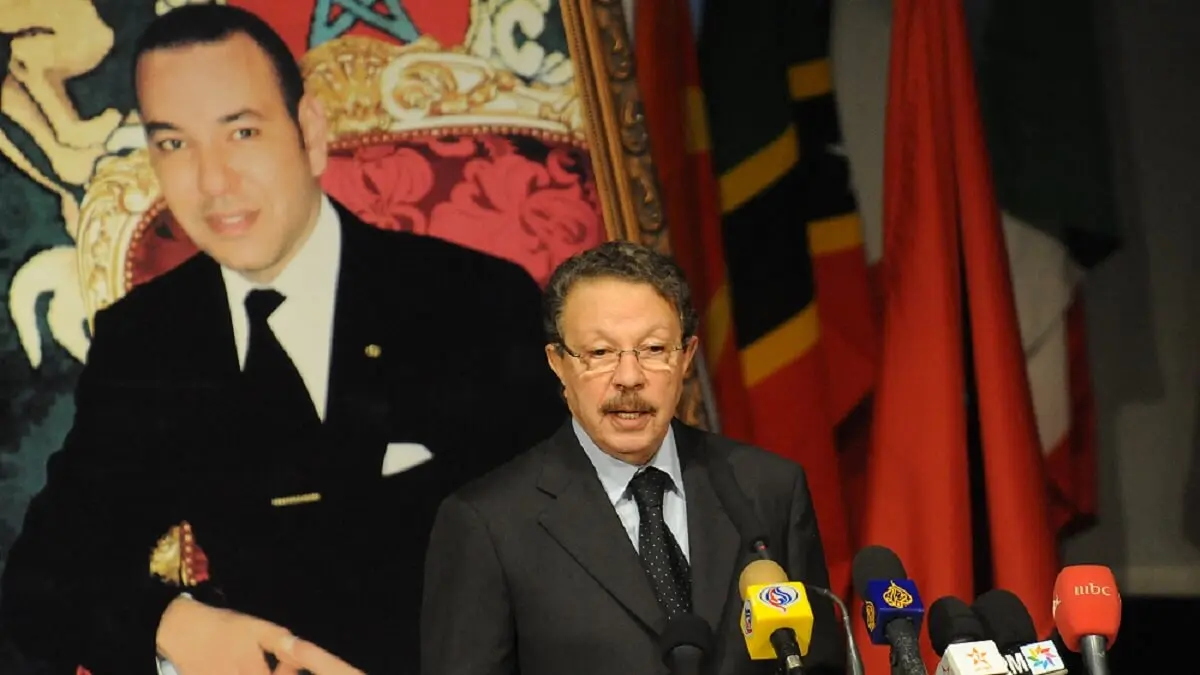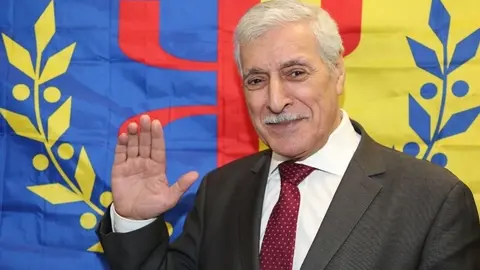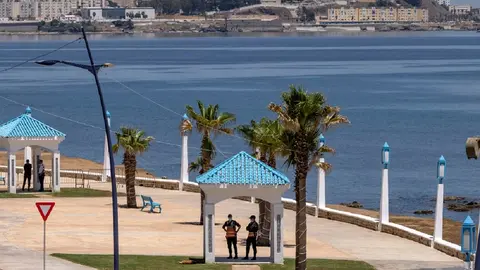Ahmed Lahlimi says corruption in Morocco is holding back economic growth

"Corruption is a handicap we have carried with us since the Protectorate and a direct brake on the growth of the Moroccan economy".
The categorical and unambiguous phrase does not come from a political opponent of the Moroccan regime, nor from an exile, nor from a journalist critical of the government presided over by the multimillionaire businessman and leader of the National Rally of Independents, Aziz Akhannouch. No. It belongs to Ahmed Lahlimi, appointed by the King to preside over the High Commission for the Plan, the official body created in 2003 at the beginning of Mohammed VI's reign to scrutinise the economy and society, and provide the state with analysis and perspectives.
In an interview with Medias24, Lahlimi reviews with detailed figures the state of the Moroccan economy, its main problems and gives some recipes for dealing with the critical situation the Kingdom is going through, with a growing increase in unemployment, rural exodus and emigration, and with most socio-economic indicators in the red.
The veteran economist, who was a member of the leadership of the Socialist Union of Popular Forces (USFP) and a grey eminence in the government headed by Abderraman Yussufi, who carried out the transition between the reigns of Hassan II and his son Mohammed VI, wonders aloud how it has been possible for Morocco, which grew at an average annual rate of 5.1% between 2000 and 2010 with an unemployment rate never exceeding 10%, has fallen in growth to 1.8% in the last decade with an unemployment rate of 13%, which would actually be 33% "if those who have left the labour market return to it".
According to the High Commissioner to the Plan, in order to tackle the current socio-economic situation, "which is worrying but not alarming", he points out, "structural reforms are needed, not just emergency therapeutic measures".
Among Lahlimi's most audacious and shocking proposals is the fight against corruption and clientelism, which, as structural problems dating back to the French Protectorate, must be placed at the forefront of institutional activity.
Corruption is a brake on growth, the senior state official believes, given that "foreign investments and the country's resources are being misappropriated" by a minority, in the countryside and in the city; "the large agricultural estates take over water resources to generate their exports", and this "to the detriment of family farms and domestic consumption".
Ahmed Lahlimi sounds the alarm bells when he unequivocally counts the figures for unemployment and the rural exodus. "Last year alone, 2023, 200,000 rural jobs were lost, and if we count the last four years (2020/2023), the figure rises to 621,000 jobs lost in agriculture. The most serious aspect, Lahlimi warns, is that it used to be men and young people who left the countryside; today it is even women.
Curiously, the statements by the High Commissioner for the Plan, which have shaken the governmental political establishment, were made at the same time as the media controversy between Algeria and Morocco over their respective agricultural production.
According to forecasts made by the US Department of Agriculture, cereal production in 2024 will be 3 million tonnes in Algeria and 2.5 million tonnes in Morocco, which has slipped from first place in the Maghreb because of the severe drought it has suffered.
Some Moroccan media have provocatively accused the regime in Algiers of manipulating photos and videos showing long lines of trucks waiting to load the wheat harvest in parts of the Algerian Sahara desert. Echoing this, Algerian President Abdelmadjid Tebboune wryly declared on television: "If Artificial Intelligence helps us, welcome".
In any case, neither Algeria nor Morocco produces enough cereals to supply its domestic market. Algeria consumes just over 8 million tonnes, while Morocco consumes more than 10 million tonnes annually.
The issue is rather one of production prices and yields per hectare. In Morocco, yields have fallen from 1,500 kilos per hectare to 900 kg/ha. In Algeria it remains at 1,600 kg/ha, according to FAO estimates. As for the real prices of local production, they remain a state secret, particularly in Algeria. This is because if the average price of wheat on the international market is around $260 per tonne, it makes little sense, other than for propaganda purposes, for Morocco or Algeria to produce it at 400 or 500 dollars per tonne, taking into account all inputs, storage, transport and various subsidies. It is possible to artificially increase the yield of wheat production, if the necessary capital is invested. The United Arab Emirates have produced more than 27 tonnes per hectare, and Kuwait 14 tonnes per hectare. But at what cost - can Algeria and Morocco afford it? Yes, of course, but to whose detriment.
Ahmed Lahlimi, in his interview, proposes an equitable distribution of means and resources between agricultural producers, large producers and family units, and the consequent intervention of the state in improving human, technical and logistical conditions in agriculture. The question is not who produces more, but how it is produced and for whose benefit.



